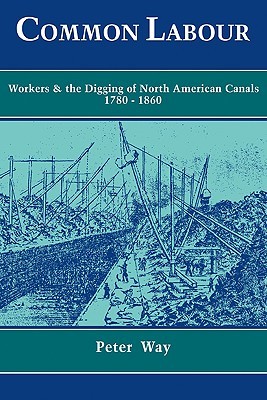
- We will send in 10–14 business days.
- Author: Peter Way
- Publisher: Cambridge University Press
- ISBN-10: 0521102650
- ISBN-13: 9780521102650
- Format: 15.2 x 22.9 x 1.9 cm, softcover
- Language: English
- SAVE -10% with code: EXTRA
Reviews
Description
This study of canal construction workers between 1780-1860 challenges labor history's focus on skilled craftsmen. Canalers were unskilled workers, often members of despised social groups such as Irish immigrants and African-American slaves. They worked twelve or more hours a day in all weather, exposed to diseases and job-related risks, going home at night to rude shanty towns. Their harsh lifestyles bred conflict that undercut worker unity but promoted battles with employers over workplace issues, and the state was increasingly drawn in to enforce industrial production. Lacking the power that skill brought, canalers had little control over their working conditions. Their experiences represent a different strand of the labor story.
EXTRA 10 % discount with code: EXTRA
The promotion ends in 18d.08:43:57
The discount code is valid when purchasing from 10 €. Discounts do not stack.
- Author: Peter Way
- Publisher: Cambridge University Press
- ISBN-10: 0521102650
- ISBN-13: 9780521102650
- Format: 15.2 x 22.9 x 1.9 cm, softcover
- Language: English English
This study of canal construction workers between 1780-1860 challenges labor history's focus on skilled craftsmen. Canalers were unskilled workers, often members of despised social groups such as Irish immigrants and African-American slaves. They worked twelve or more hours a day in all weather, exposed to diseases and job-related risks, going home at night to rude shanty towns. Their harsh lifestyles bred conflict that undercut worker unity but promoted battles with employers over workplace issues, and the state was increasingly drawn in to enforce industrial production. Lacking the power that skill brought, canalers had little control over their working conditions. Their experiences represent a different strand of the labor story.


Reviews